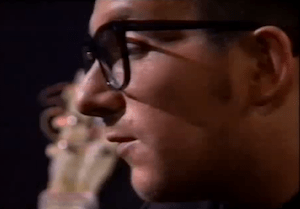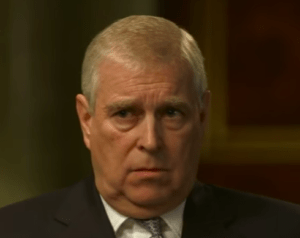Will Elvis Costello Dance on Margaret Thatcher’s Grave? (Video)
In a famous lament written at the height of the Thatcher years, the English musician expressed a desire to live long enough to see the brutal British leader die so he could one day "stand on [her] grave and tramp the dirt down."
In a famous lament written at the height of the Thatcher years, the English musician expressed a desire to live long enough to see the brutal British leader die so he could one day “stand on [her] grave and tramp the dirt down.”
Costello’s song (its title is taken from the last four words of that quote) caused an outrage among polite British society at the time. It’s doing so again. Member of Parliament George Galloway expressed his satisfaction at the death of Thatcher on Tuesday with a reference to the song in a tweet. The Daily Mail’s deputy political editor, Tim Shipman, condemned the comment as “stunningly unpleasant.”
Tramp the dirt down.
— George Galloway (@georgegalloway) April 8, 2013
Others are remembering their manners. The Guardian conspicuously failed to include Costello’s ballad in a compilation of music about Thatcher written during her rule that it published this week.
Shortly after the song’s release in 1989, Costello spoke with music journalist Allan Jones about what broad social change, if any, his song might help shape. Costello’s response confirms that certain actions have value simply because they provide the comfort of recognition to people who are suffering. Not all actions — including political ones — have to be undertaken for the sake of some tangible societal effect. Some are sufficient if they help those who are capable of being touched by them to reflect, process, heal and feel a little less alone.
“Nothing I can think of,” Costello said. “I honestly don’t think it will change anything. Like I said to one guy who asked a similar question, songs like that, they’re like tiny marker buoys. You know, ‘This is where the ship went down.’ The song’s not a party political broadcast, there’s no manifesto. It just says, ‘I’ll only be happy when this woman’s dead.’
“And some people no doubt might find that extreme. But it’s meant to be. I make no apology for that song. It’s an honest emotional response to events, and writing it was like casting out demons or something. And the song itself is the result of a form of madness, because when you get to that point of thinking these thoughts, actually wishing somebody dead, it really does become a form of madness. It’s a psychopathic thought. And it’s fucking disturbing to find it in your own head. But it would be cowardly not to express it. Because once it’s there, if you don’t get it out, it’s only going to come back and haunt you some more.
“I also think you have to remember that it’s not only her that the song is aimed at. It’s what she represents. The way she’s changed the way people value things. It’s like some kind of mass hypnosis she’s achieved. People are afraid to speak out. You know, one thing I thought I’d be asked when people heard it was whether I was saying it might’ve been a good thing if she’d died in the Brighton bombings. I don’t think so. It would have made things 10 times worse, because then she would have been a martyr. We would have had a dead queen. So really, in a profound sense, the song is hopeless. It’s a hopeless argument. Because I think it’s a hopeless situation. So, no, it’s not in a large, historical sense, going to change anything.”
See Costello lick his wounds and pine for his country’s deliverance from Thatcher in a 1989 BBC2 live performance below. Read the lyrics here.
alexredcloud:
— Posted by Alexander Reed Kelly.
Your support matters…Independent journalism is under threat and overshadowed by heavily funded mainstream media.
You can help level the playing field. Become a member.
Your tax-deductible contribution keeps us digging beneath the headlines to give you thought-provoking, investigative reporting and analysis that unearths what's really happening- without compromise.
Give today to support our courageous, independent journalists.





